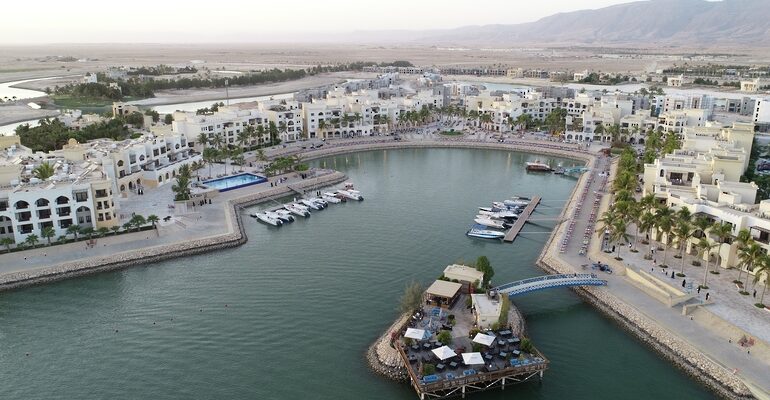
Muscat – As the scorching Sun tightens its grip on Muscat, temperatures continue to soar, wrapping the city in a cloak of severe heat which has crossed over 40 °C. Roads shimmer, tempers fray, and the struggle of daily life becomes more pronounced—especially for those who walk or work outdoors. In areas like Ruwi, Hamriya, Ameerat, […]
Muscat – As the scorching Sun tightens its grip on Muscat, temperatures continue to soar, wrapping the city in a cloak of severe heat which has crossed over 40 °C. Roads shimmer, tempers fray, and the struggle of daily life becomes more pronounced—especially for those who walk or work outdoors. In areas like Ruwi, Hamriya, Ameerat, Seeb and Ghubra, where summer doesn’t show mercy, the simple act of offering cool water to quench thirst has becoming a lifeline for many.
In the middle of this heatwave, a few kind-hearted residents have quietly transformed their homes into hydration points. From narrow alleyways in Ghubra to bustling corners of Ruwi, one can spot taps and water dispensers outside villas, offering cold, clean drinking water.
For Shantanu Das, a plumber from Dhaka working in Ameerat, this act of kindness is nothing short of a blessing. “I often work under the open sun, far from any shops or mosques. There’s a house I pass regularly with two taps installed on the wall. Cold water flows from them even in the afternoon. It may seem small, but for someone like me, it’s a huge difference.” Das also makes sure to fill extra two bottles with cold water for his colleagues and himself.
These outdoor water points are often connected to coolers hidden inside the homes. This water refreshes workers who cool off amid the day’s heat. Mohiuddin Rahman, a Pakistani gardener in Hamriya, shares, “My hands are full of mud and sweat by noon. One gulp of that cold water refreshes everything. It feels like someone thought about us. Before there were five houses that offered these taps but now, I see more”.
One villa in Ghubra has an emotional story behind its taps. “Our mother believed feeding and offering water was a divine duty,” said Sameera Ali, an Omani resident. “She passed away last year, but her compassion lives on. My husband, two brothers and I installed these two taps outside in her memory. Every summer, we clean the tanks and make sure the water is cool. We plan for more in the next year for the other houses.”
While not government-mandated, this simple yet impactful gesture has quietly spread across the city. For those enduring long hours under the sun—delivery men, painters, gardeners, and commuters—these small water taps are symbols of humanity.


 Omani startup develops AI-powered device to aid deaf and mute
Omani startup develops AI-powered device to aid deaf and mute
 Oman’s 3- to 5-star hotel revenues increase 12.7% to RO59mn
Oman’s 3- to 5-star hotel revenues increase 12.7% to RO59mn
 Oman moves towards global recognition of protected areas
Oman moves towards global recognition of protected areas
 Fire breaks out at shopping centre in Nizwa
Fire breaks out at shopping centre in Nizwa
 Oman: Coast guard foils major drug smuggling attempt
Oman: Coast guard foils major drug smuggling attempt
 H H Sayyid Theyazin inaugurates ‘Active Oman’ and ‘Action Point Centre’ in Muscat
H H Sayyid Theyazin inaugurates ‘Active Oman’ and ‘Action Point Centre’ in Muscat